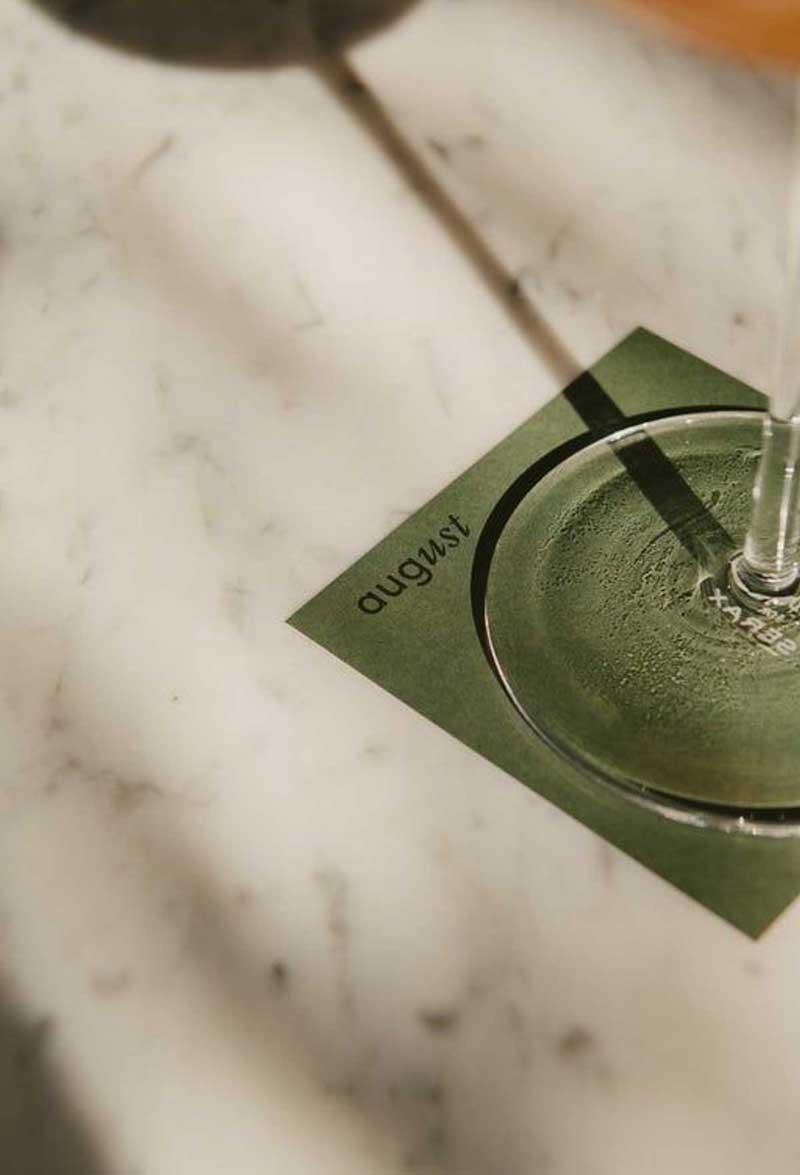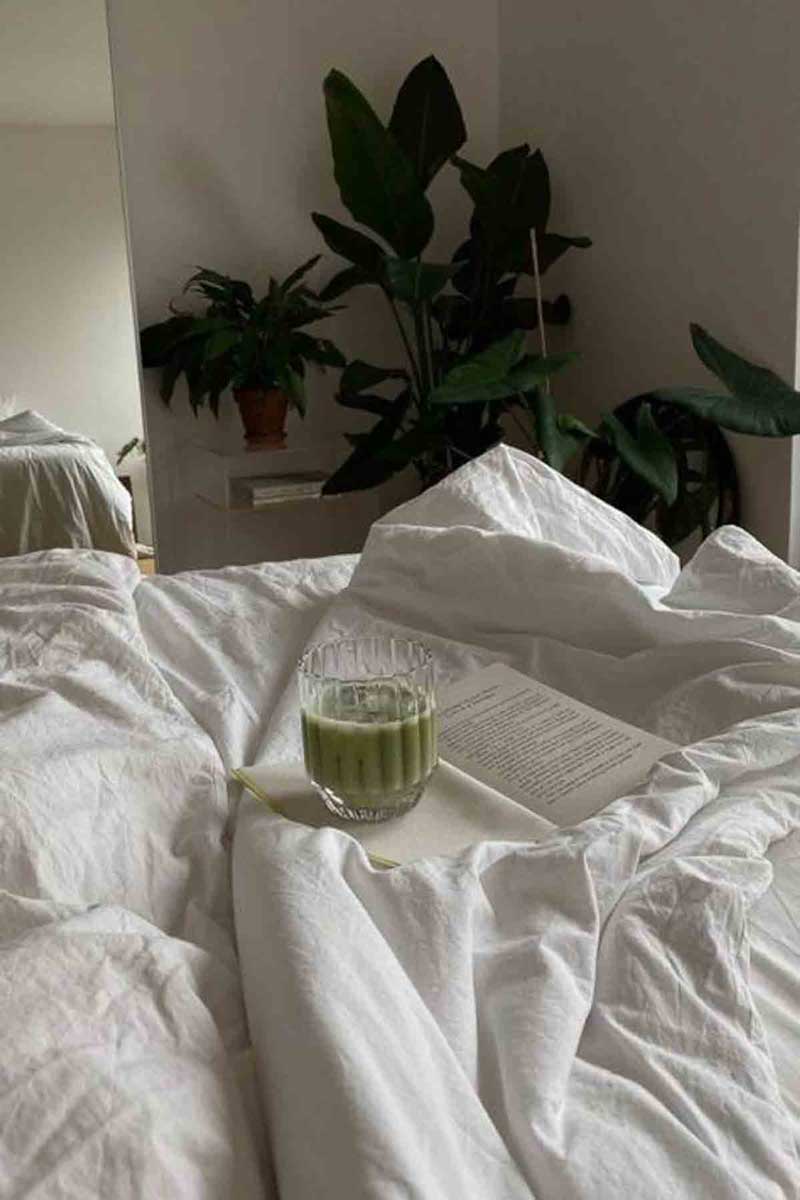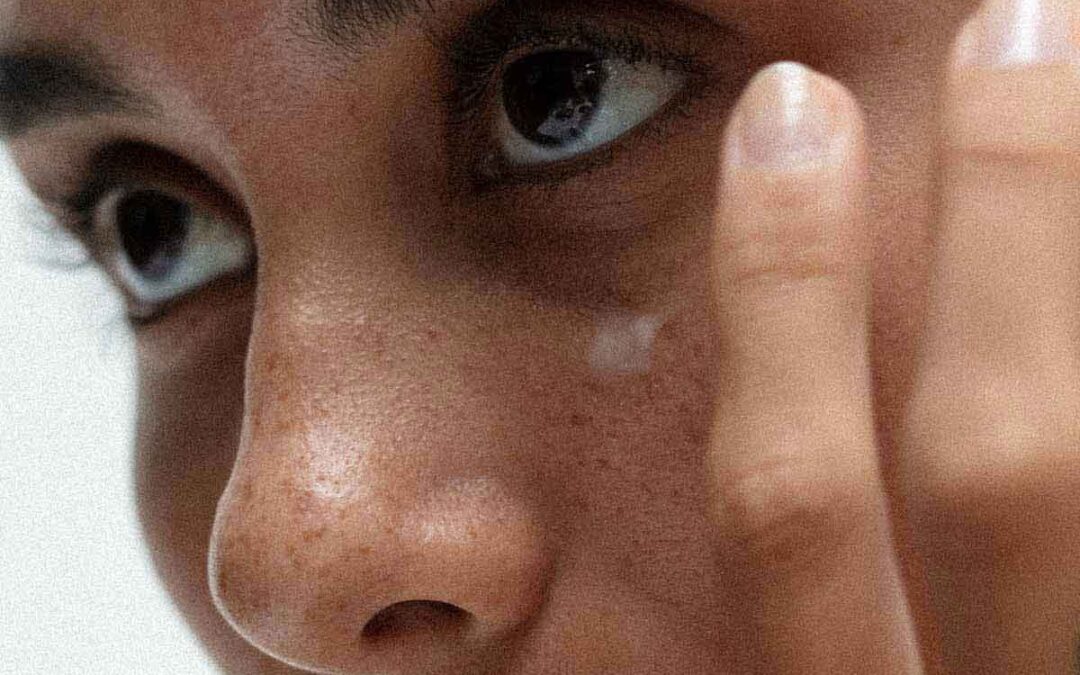You might have the impression to be familiar with your acne triggers and, although that might be true for some of them, there are others that I’m sure you might have never considered. Here are 10 surprising acne triggers, from the most obvious ones (genetics and nutrition), to the most surprising ones (have you ever considered the effect your phone has on the skin of your face?)
What causes an Acne outbreak
Acne starts when our follicles get clogged with oil, dead skin cells or pollution in the air which leads to an inflammation of the follicle creating pimple and blackhead breakouts. The bacteria that we have in our skin can contribute to increasing the severity of the situation by rooting the clogged follicle deep into our skin
In this article we will cover 10 surprising acne triggers that you need to know about. By understanding them you can take charge against this skin condition that diminishes the quality of life of the people it affects. Make informed decisions about your skincare routine to make sure you are taking full advantage of the products while reducing the risks of developing another breakout.

Acne Triggers hidden in your daily routine
What might be causing your breakouts that you don’t even suspect about? I have prepared a list of ten of the worst enemy for your acne, and do know you’re living with these enemy daily. Overlooking them, is the mistake we all make, until we realize how much avoiding these simple acne triggers can boost the effectiveness of our skincare routine. I have kept the details short per each item, so that you’re not facing an overwhelming read.



Hairstyling Products
We usually do not think that what we put in other parts of our body will affect our skin. Hair, especially if you wear yours long, is constantly grazing the skin of your face, neck and upper back. Some hairstyling products have within them oils and silicones which can clog your pores just as sebum does, starting a breakout.
Facial Hair Removal
Something as common and basic as shaving and waxing can have unforeseen consequences. Shaving, waxing, or using depilatory creams may cause skin irritation and inflammation, which can trigger acne. Be sure to always use clean and sharp razors to minimize inflammation, and using an aftershave product to minimize the risk of breakouts and leave the skin feeling silky.
Using too many Skincare Products
Too much of something can also be harmful. Having a complex skincare routine may seem beneficial, but using too many different products can actually worsen acne. Applying multiple products can actually clog your pores leading to more breakouts. Keep your skincare routine simple and natural with products that suit your personal skin type.



Comedogenic Makeup
Makeup, especially oil-based makeup, can clog pores and trap bacteria on the skin. Make sure to thoroughly wash your face using a gentle makeup remover or some ph-balanced soap to minimize the risk of acne caused by residual makeup.
Environmental Factors
Research has found that several environmental factors can make us more prone to acne breakouts. The air quality in the cities we live in is a factor that also affects the health of our skin. Pollutants, Volatile Organic Compounds (VOCs) and ozone can have an influence on the severity of the breakouts.
Sunscreens: frequent Acne Triggers
It is necessary to protect our skin against harmful UV rays that cause premature aging and even cancer on the skin. However, certain formulations can clog your pores and worsen acne. Look for oil-free, non-comedogenic sunscreens that are specifically developed for acne-prone skin. Also consider products with natural ingredients such as Vitamin C which has an UV blocking compound (It is important to note that Vitamin C alone does not offer enough protection agains UV rays, it must be mixed into a product that fully offers protection).
Discussing your skin’s particular needs with a skincare professional who will help guide you through the process is anyway always recommended, but just like I do, I am sure all the readers affected by Melasma already have seen frequently their dermatologists. Don’t be shy, and share this article with your dermatologist for a more synergic approach to dealing with your case of Melasma.
Processed Food
Diet plays a significant role in overall skin health, and eating large amounts of processed foods can contribute to acne. High-glycemic index foods like sugary snacks and, refined carbohydrates like pasta and french fries can cause blood sugar spikes and trigger inflammation in the body. Consider a balanced diet with plenty of fruits, vegetables, whole grains, and lean proteins to promote clear skin.
Stress
Stress can wreak havoc on your skin. It can affect your hormone levels, boost inflammation, and decrease the skin’s natural healing processes. Just as with physical health, it is important to take care of our mental health. Finding ways to manage stress, like mindfulness meditation and exercise can help reduce the effect it has on your skin and reduce of acne flare-ups.
Your Phone
Our phone is present in every moment of our lives and yet, we rarely take the time to clean it. The phone collects dirt, oil, and bacteria throughout the day, and by pressing it against your face when you make a call or touching your skin after having send a text can transfer these impurities, clogging the pores. Regularly clean and desinfect your phone and protect your health and your skin.
Bedsheets and Pillowcases
We spend a third of our day with our face rubbing our bedsheets. Sleeping on dirty or not well kept sheets and pillowcases can clog your pores by exposing your skin to bacteria and oils that are trapped in the tissue. Wash your bedding regularly, ideally once a week, to help reduce your acne breakouts.
Tips to counterbalance your daily acne triggers
Although many of these triggers have to do with a lifestyle there are simpler ways to help clean and clear the skin of pimples and blackheads. A simple skincare routine that I love due to its effectiveness is:
- Using a gentle and deep cleanser after a long day while prepping to go to sleep. I recommend one like the Hibiscus & Rosella Cleansing Oil that breaks down buildup and dissolves makeup revealing a brighter complexion without stripping the skin for a soft, supple and fresh feeling.
- Giving your skin a regenerative boost that dries out imperfections quicker, leaving you with healthy skin without blemishes. Our go-to-product is the Bulgarian Rose Soothing Toner which uses as a base Rose Water which has long been recognized as a natural ingredient to fight skin aging effectively.
- Finish off by hydrating the skin with the Basil & Cassia Antioxidant Face Serum Stick: a hydrating and silky serum that moisturizes, soothes, hydrates, and plumps with hyaluronic acid and natural humectants.
Follow this simple and quick skincare routine before bed to see a big change in the overall health of the skin in your face and keep naturally glowing 24/7.
FAQs
Which foods are common acne triggers?
While the relationship between diet and acne is complex and varies from person to person, there is evidence to suggest that foods with a high glycemic index can potentially worsen acne. These foods, including sugary treats, processed snacks, and white bread, can cause a rapid spike in blood sugar levels. This, in turn, triggers a cascade of hormonal responses that can lead to increased sebum production, inflammation, and clogged pores. It's worth noting that not everyone will experience the same effects from these foods, but it may be beneficial for individuals prone to acne to monitor their diet and reduce consumption of high-glycemic foods.
How does stress affect acne?
When we're stressed, our bodies release stress hormones like cortisol, which can stimulate the sebaceous glands to produce more sebum. Excess sebum, along with the buildup of dead skin cells and bacteria, can clog pores and lead to acne formation. Moreover, stress can compromise our immune system, making it less effective at fighting off bacteria and inflammation associated with acne. Therefore, managing stress through relaxation techniques, exercise, and self-care can be beneficial for maintaining clear skin
How do hormonal changes act as acne triggers?
Hormonal changes can have a profound effect on the development of acne, particularly during puberty, menstrual cycles, or in individuals with hormonal disorders. Fluctuations in hormone levels, such as an increase in androgens (male hormones), can stimulate the sebaceous glands to produce more sebum. This excess sebum, combined with dead skin cells and bacteria, can clog pores and create an environment ideal for acne formation. Hormonal acne often presents as deep, painful cysts on the lower face, jawline, and neck. It's important to note that hormonal changes can affect both males and females, although they are typically more pronounced in females due to the menstrual cycle. Managing hormonal acne often requires a holistic approach that may include topical treatments, oral medications, and lifestyle modifications
Can wearing a tight hat or clothing trigger an acne outbreak?
Yes, wearing tight clothing or hats can potentially trigger acne breakouts, especially in areas where there is friction or heat buildup. Tight clothing, such as tight-fitting shirts or sports gear, can create friction against the skin, leading to irritation and inflammation. This friction can disrupt the skin's natural barrier and contribute to the formation of acne. Similarly, wearing hats or caps that are tight or made from non-breathable materials can trap sweat and bacteria against the skin, promoting the growth of acne-causing bacteria and clogged pores. To minimize the risk of acne in these areas, it's advisable to wear loose-fitting, breathable clothing and choose hats made from breathable fabrics like cotton.
Can birth control pills and other medications be considered acne triggers?
Yes, certain medications can potentially cause or worsen acne as a side effect. For example, corticosteroids, which are commonly used to treat inflammatory conditions like asthma or allergies, can disrupt the hormonal balance in the body and lead to acne breakouts. Anticonvulsant medications used to treat epilepsy or mood disorders have also been associated with acne as a side effect. Furthermore, some hormonal medications, including certain types of birth control pills or hormone replacement therapies, may cause hormonal fluctuations that can contribute to acne development. If you suspect that a medication you are taking is affecting your skin, it's important to consult with your healthcare provider to explore alternative options or adjust the dosage if possible
Does smoking trigger acne?
Yes, smoking has been associated with an increased risk of acne development. Smoking affects the skin in multiple ways that can contribute to the formation of acne. Firstly, smoking reduces blood flow to the skin, depriving it of oxygen and vital nutrients. This can impair the skin's ability to heal and regenerate, making it more susceptible to inflammation and acne breakouts. Secondly, smoking increases the production of free radicals in the body, leading to oxidative stress and inflammation. Inflammation plays a key role in the development of acne lesions. Lastly, smoking weakens the immune system, making it less efficient at fighting off acne-causing bacteria and reducing inflammation. Quitting smoking or avoiding exposure to secondhand smoke can significantly improve overall skin health and reduce the risk of acne.
Can lack of sleep affect acne
Yes, insufficient sleep can have a negative impact on the skin and contribute to acne breakouts. During sleep, the body undergoes various restorative processes, including skin cell turnover and repair. When we don't get enough sleep, these processes can be disrupted, leading to an accumulation of dead skin cells and a compromised skin barrier. This can make the skin more prone to inflammation, clogged pores, and acne breakouts. Lack of sleep can also elevate stress hormone levels, further exacerbating acne. It's important to prioritize quality sleep and establish a consistent sleep routine to support healthy skin and overall well-being.









